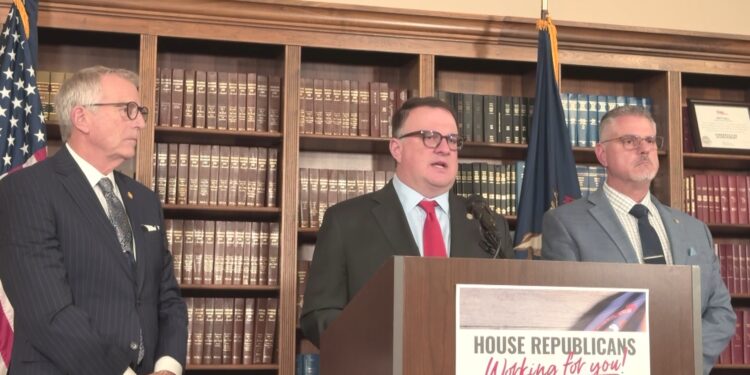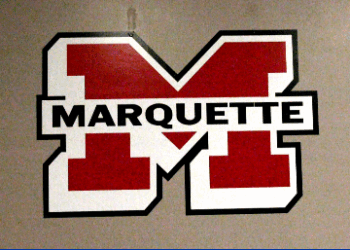LANSING, Mich. (WZMQ) – Michigan lawmakers are proposing a major shift in how the state attracts and retains jobs, saying years of business incentive programs have failed to deliver on their promises. House Republicans introduced a new proposal called the Real Jobs Tax Credit, which they argue brings accountability to a system they say has produced “fake jobs, not real jobs.”
For decades, Michigan has relied on large-scale incentive programs like SOAR and the MEGA credits, offering companies upfront subsidies in exchange for commitments to create or keep jobs. Critics say those deals often paid out before the jobs existed, and in some cases never produced the economic return taxpayers were promised.
House Speaker Matt Hall (R–Richland Township) said the old approach no longer works.
“I think Mark Tisdel and Mike Hoadley said what if we created real jobs, not fake jobs — real jobs,” Hall said.
How the Real Jobs Tax Credit Works
The proposal would create a tax credit that companies receive only after they create new full-time positions that pay at least 150% of the median regional wage.
Representative Mike Hoadley (R–Au Gres) said the change is designed to reward results rather than promises.
“What Real Jobs does is create a 50 percent tax credit captured from employee withholding,” Hoadley said.
The credit could last for up to 10 years and would be limited to $50 million annually. Funding would be divided among small, medium, and large businesses to ensure companies of all sizes can participate.
Hoadley said the structure ensures “all of our businesses, from the microbusinesses to the largest corporations, qualify for this because it starts at job one.”
Representative Mark Tisdel (R–Rochester Hills) emphasized that the plan is performance-based.
“This is not upfront money — this is incentives based on performance,” he said.
Addressing Old MEGA Credit Obligations
The proposal also tackles long-standing MEGA credit liabilities dating back more than a decade.
Tisdel said lawmakers are working to restructure those payouts, not cancel them, and spread them over the next ten years.
“We’re not walking away from the commitment and the deal we’ve made, but we’re simply going to restructure that and get it out in 10 payments,” he said.
A Broader Economic Development Overhaul
Lawmakers say the Real Jobs Tax Credit is the first step in a larger strategy to modernize Michigan’s economic development policy. The plan aligns with ongoing infrastructure, regulatory, tax, and workforce discussions that Republicans say are needed to make Michigan more competitive.
House Republicans argue SOAR, in particular, has fallen short. They cite nearly $2 billion in approved subsidies that they say resulted in zero verified jobs, and claim companies have rarely faced consequences for missed benchmarks.
Negotiations over the future of Michigan’s incentive programs are ongoing. Lawmakers say they hope to reach an agreement with the governor and Senate by the end of the year.


















